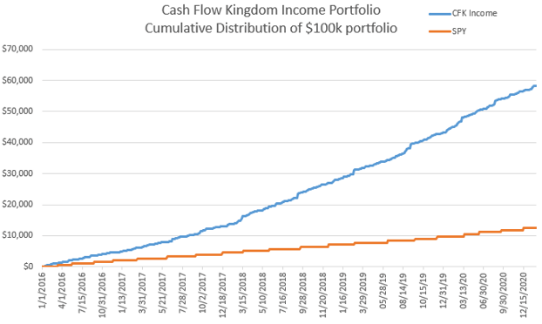Summary:
- Alphabet Inc. aka Google reported a strong Q3 double beat, with compelling business growth and margin expansion, trading at an undemanding valuation.
- Alphabet’s mid-teens revenue growth rate is highly attractive, especially compared to peers like Apple, showcasing its strong business model and competitive moat.
- Google Cloud’s revenue grew by 35%, with profits jumping sevenfold, significantly boosting Alphabet’s overall operating profits and margins.
- Despite AI and regulatory risks, Alphabet’s growth, low valuation, and strong cash flow make it the most attractively valued Mag 7 stock.
hapabapa/iStock Editorial via Getty Images
Article Thesis
Alphabet Inc. aka Google (NASDAQ:GOOG, NASDAQ:GOOGL) reported a strong Q3 double beat on Tuesday afternoon. The company showed compelling business growth while margin expansion continued. All in all, this was another successful quarter for Alphabet, which continues to trade at a very undemanding valuation.
Past Coverage
I have written about Alphabet in the past here on Seeking Alpha, with this being my most recent article, in which I upgraded Alphabet from a “Buy” to a “Strong Buy” due to overblown pessimism that made Alphabet’s shares very inexpensive. So far, this has worked out well, as Alphabet has risen by 13% since that article was published, not including Tuesday’s post-earnings share price jump. With Alphabet reporting another earnings report that looks strong and that, in my belief, underlines that fear about business risks are overblown, it is time for an update on the company.
What Happened?
Alphabet reported its most recent earnings results on Tuesday, following the market’s close. The headline numbers looked like this:
Alphabet earnings results (Seeking Alpha)
Like in many past quarters, the tech giant beat estimates on both lines — in fact, this was the seventh double beat in a row. For some reason, Wall Street analysts have a clear tendency to underestimate the company, both when it comes to Alphabet’s business growth (revenue) and when it comes to its profitability.
Investors reacted positively to the company’s earnings results, with Alphabet trading up 4% at the time of writing. This is not surprising to me, as the combination of a low valuation and strong earnings results naturally allows for a positive share price reaction.
Alphabet: Strong Business Growth And Tight Cost Controls
Alphabet grew faster during some times in the past, but that holds true for every gigantic company — after all, no company can grow at 20%, 30%, or even more forever. But while Alphabet’s growth rate has come down compared to the peak growth rates seen in the past, the company continues to grow at a highly attractive pace. A mid-teens revenue growth rate from a company that does almost $90 billion in quarterly revenue, or around $350 billion annualized, is highly compelling.
Apple (AAPL), for example, another Mag 7 stock that generates comparable revenues ($86 billion during the most recent quarter), is growing at a way slower pace of around 5% as of the most recent earnings report. And even that is far from bad, considering Apple’s massive size. With Alphabet generating comparable revenues while achieving a way higher growth rate, Alphabet looks even better than Apple, of course. The fact that a company this large can maintain a growth rate deep in the double digits also underlines that its business model must have a massive moat.
Some investors have recently worried about what AI and Large Language Models could do to Alphabet’s Search division, but so far, everything seems to be going perfectly fine. Alphabet’s Search segment saw its revenue expand by 12% during the third quarter. This is a pretty strong performance for a massive business generating around $200 billion per year in revenue — this is a comparable size to Apple’s iPhone revenues, with the difference being that Search grows way faster.
While the Search business is the largest unit by far, other segments are important as well, and they also performed in a compelling manner. Alphabet’s YouTube grew by 12%, thus competition from the likes of TikTok (BDNCE) is still not a problem for the video website. Google Network experienced a very minor revenue decline, but that was more than balanced out by the performance of the other segments. Still, investors may want to keep an eye on Google Network’s future performance to see whether a negative trend is developing.
The best performance came from Alphabet’s cloud business: Google Cloud saw its revenue blow up by 35%, with growth accelerating further, as the sequential growth rate stood at 10% — that’s north of 40% annualized. Even better than Google Cloud’s revenue performance was its profit performance, as the unit saw its operating profit soar from $270 million to $1.95 billion. With profits in this highest-growth segment jumping sevenfold compared to one year earlier, Alphabet’s bottom line naturally was positively impacted to a significant degree. Company-wide operating profits rose by $7.2 billion in total, with around one-fourth of that coming from the additional profits the cloud business generated. It looks like the cloud business benefits massively from operating leverage, which makes sense, as development costs, for example, do not rise much when additional customers are added.
We can thus expect that profit growth at Google Cloud will remain strong going forward as long as the unit continues to grow at a meaningful pace. With the revenue growth rate for the cloud segment accelerating during the most recent quarter, I believe that there is a good chance that business growth will remain strong in the foreseeable future. Profits thus should continue to rise at a nice pace.
Thanks to tight cost controls, Alphabet also saw its margins expand in other areas. Alphabet’s Google Services group, which includes Search, YouTube, and Google Network, saw its operating profits expand by 29% compared to one year earlier, also benefitting from operating leverage. While overhiring was a problem at Alphabet during the pandemic, management has run a tight ship recently, and investors benefit from that, as this results in ongoing margin expansion. Alphabet’s operating margin jumped up by 400 base points year-over-year, thanks to massive profit growth in the cloud business and improvements in the Google Services group. While margins can’t expand at that pace forever, I believe that we will see further margin improvements in the foreseeable future as long as management remains focused on preventing overhiring and controlling costs tightly.
Operating cash flow grew only marginally compared to the previous year’s third quarter, which is a bit surprising, considering the strong profit growth rate. But when we look at the cash flow statement, we see that this is due to factors such as accrued expenses benefitting cash flows one year ago, while that was not the case in this year’s Q3. The same can be said about last year’s Q3 taxes.
The fact that cash flow didn’t grow much is thus not a reason to worry — instead, it is a reversal of some one-time items last year. At more than $30 billion of operating cash flow in a single quarter, Alphabet remains a cash flow monster. Accounting for capital expenditures of $13 billion, which includes spending on Nvidia’s (NVDA) chips, Alphabet generated free cash flows of $17 billion, or more than $60 billion annualized. Most of that, or $15 billion, was used for share repurchases — considering the low valuation shares traded at during the third quarter (the trough was less than 20x net profits), I believe that buybacks are a great way to utilize Alphabet’s huge free cash flows. Alphabet’s share count declined by 2.2% over the last year, with share-based compensation already being accounted for. This is relatively comparable to Apple’s famed buyback pace, as Apple reduced its share count by 2.7% over the last year.
Is Alphabet A Buy?
Some investors worry about AI risks to Alphabet’s business, but at least for now, I don’t see a reason for that. Alphabet’s business growth actually accelerated compared to one year ago. The Search business continues to grow at a very nice pace, and Alphabet is a major AI player itself — it could be able to generate huge AI revenues in the future thanks to ongoing investments in this space.
There are regulatory risks, as some regulators want to break up Alphabet. But in the recent past, none of the big tech companies got broken up, even though regulators talked about that from time to time. Thus, I believe it is not very likely that this will happen in the future. And even if it were to happen, the pieces would, of course, not become worthless. If Alphabet were broken up, investors would be shareholders of two large fast-growing companies instead of being shareholders of one massive fast-growing company — that wouldn’t be a massive disaster, I believe.
A potential recession is a risk to consider, as lower ad spending by consumer-facing companies could hurt Alphabet, but a recession is not overly likely in the US for now, and it would be a temporary issue only.
While Alphabet is not risk-free, I believe that the risks many investors talk about are not overly large. With Alphabet continuing to grow at a very nice pace and trading at just 22x forward earnings, I remain a big fan of Alphabet and see it as the most attractively valued Mag 7 stock right now.
Analyst’s Disclosure: I/we have a beneficial long position in the shares of GOOG either through stock ownership, options, or other derivatives. I wrote this article myself, and it expresses my own opinions. I am not receiving compensation for it (other than from Seeking Alpha). I have no business relationship with any company whose stock is mentioned in this article.
Seeking Alpha’s Disclosure: Past performance is no guarantee of future results. No recommendation or advice is being given as to whether any investment is suitable for a particular investor. Any views or opinions expressed above may not reflect those of Seeking Alpha as a whole. Seeking Alpha is not a licensed securities dealer, broker or US investment adviser or investment bank. Our analysts are third party authors that include both professional investors and individual investors who may not be licensed or certified by any institute or regulatory body.
Is This an Income Stream Which Induces Fear?
 The primary goal of the Cash Flow Kingdom Income Portfolio is to produce an overall yield in the 7% – 10% range. We accomplish this by combining several different income streams to form an attractive, steady portfolio payout. The portfolio’s price can fluctuate, but the income stream remains consistent. Start your free two-week trial today!
The primary goal of the Cash Flow Kingdom Income Portfolio is to produce an overall yield in the 7% – 10% range. We accomplish this by combining several different income streams to form an attractive, steady portfolio payout. The portfolio’s price can fluctuate, but the income stream remains consistent. Start your free two-week trial today!
